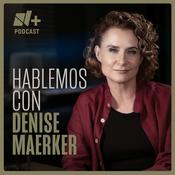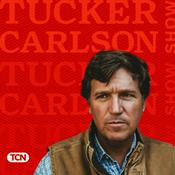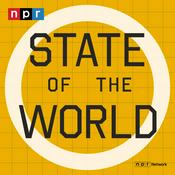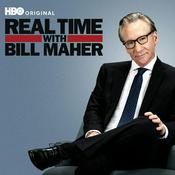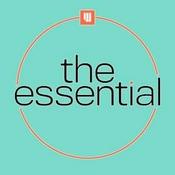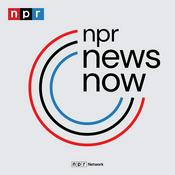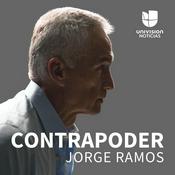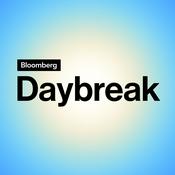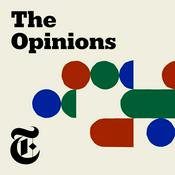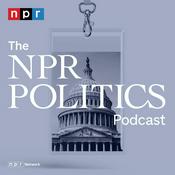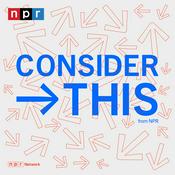484 episodios
- Border czar Tom Homan announced the end of the ICE operation in Minnesota in the coming days following weeks of operations by federal law enforcement in the state.
Customs and Border Patrol officials closed airspace around the El Paso airport this week after firing an anti-drone laser, and failing to coordinate with the Federal Aviation Administration.
And President Donald Trump ordered pride flags at New York City’s Stonewall National Monument, a prominent site in LGBTQ history, removed as part of a larger campaign to change displays at national parks around the country.
And, in global news, Israeli Prime Minister Benjamin Netanyahu was in Washington this week meeting with President Donald Trump. Items on the agenda were Iran, its ballistic missiles, and Iranian nuclear capabilities.
Meanwhile, European leaders gathered in Belgium to counter economic pressure from China and military threats from Russia.
And the Trump Administration threatened to block the opening of the Gordie Howe Memorial Bridge over disputes with the Canadian government. The structure, which connects Michigan and Ontario, took several years and billions of dollars to build.
We cover the most important stories from around the globe on the News Roundup.
Find more of our programs online. Listen to 1A sponsor-free by signing up for 1A+ at plus.npr.org/the1a.
Learn more about sponsor message choices: podcastchoices.com/adchoices
NPR Privacy Policy - In his latest round of verbal attacks against Canada, Donald Trump says the country is trying to “take advantage of America.”
The comments come as the president threatens to block the opening of a bridge between Michigan and Ontario. The Gordie Howe International Bridge cost about $4.7 billion dollars to build and has been under construction since 2018. The bridge is due to open this year. That’s according to the Windsor-Detroit Bridge Authority, the Canadian government entity behind its construction.
But in a post on his social media on Monday, Trump said he won’t allow the bridge to open, saying the U.S. won’t benefit. While the bridge is financed by the Canadian government, it’s publicly owned by the governments of Canada and Michigan.
Find more of our programs online. Listen to 1A sponsor-free by signing up for 1A+ at plus.npr.org/the1a.
Learn more about sponsor message choices: podcastchoices.com/adchoices
NPR Privacy Policy - Thousands of people protested the Trump administration’s immigration crackdown in Minnesota last month, including hundreds of religious leaders. At least a hundred clergy were arrested during a demonstration at Minnesota’s largest airport.
Meanwhile in Maine, local religious leaders have been lining up outside of businesses targeted by ICE to form a “spiritual shield” to protect immigrant workers. But the actions of these faith leaders is a stark contrast to the conservative Christianity touted by the Trump administration.
The relationship between religion and social activism is far from new. But how is that relationship evolving in the current political moment?
Find more of our programs online. Listen to 1A sponsor-free by signing up for 1A+ at plus.npr.org/the1a.
Learn more about sponsor message choices: podcastchoices.com/adchoices
NPR Privacy Policy - Northwest Georgia is a picturesque place, with rolling hills and open farmland. Its creeks and rivers have sustained families for generations. On the surface, the environment looks pristine.
But something toxic lurks within the lush landscape that you can’t see, smell, or taste. For many years, locals weren’t aware of its presence.
PFAS are a group of synthetic chemicals used to repel water and stains. Many of them don’t break down in nature, which is why they’re often called ‘forever chemicals.’ They can build up in the environment and our bodies over time.
These chemicals were used for years in the production of carpets in northwest Georgia. And the long-term environmental and human cost in the region is high.
In this installment of our Local Spotlight series, we head to the “carpet capital” of the world to examine its chemical problems.
Find more of our programs online. Listen to 1A sponsor-free by signing up for 1A+ at plus.npr.org/the1a.
Learn more about sponsor message choices: podcastchoices.com/adchoices
NPR Privacy Policy - We’re just a few weeks out from the very first state primary elections of the year. And President Donald Trump and the GOP are, at the moment, unpopular.
As people around the country prepare to head to the polls to decide who will run in this year’s midterms, the president is once again trying to undermine the most basic functions of elections. He’s still spreading lies about past elections he lost and is now sowing seeds of doubt in the local elections process. There is no evidence to support Trump’s repeated, false claims of voter fraud in the 2020 presidential election.
In late January, the FBI seized boxes of 2020 election ballots and other voting records in Fulton County, Georgia, which for years has been the focus of his baseless conspiracy theory that the election was rigged.
In this installment of our weekly politics series, “If You Can Keep It,” we explore what the president’s latest attacks on election integrity mean for the future of our democracy.
Find more of our programs online. Listen to 1A sponsor-free by signing up for 1A+ at plus.npr.org/the1a.
Learn more about sponsor message choices: podcastchoices.com/adchoices
NPR Privacy Policy
Más podcasts de Noticias
Podcasts a la moda de Noticias
Acerca de 1A
Listening to the news can feel like a journey. But 1A guides you beyond the headlines – and cuts through the noise. Let's get to the heart of the story, together – on 1A.Support NPR and get your news sponsor-free with 1A+. Learn more at plus.npr.org/the1a
Sitio web del podcastEscucha 1A, El Noti y muchos más podcasts de todo el mundo con la aplicación de radio.net

Descarga la app gratuita: radio.net
- Añadir radios y podcasts a favoritos
- Transmisión por Wi-Fi y Bluetooth
- Carplay & Android Auto compatible
- Muchas otras funciones de la app
Descarga la app gratuita: radio.net
- Añadir radios y podcasts a favoritos
- Transmisión por Wi-Fi y Bluetooth
- Carplay & Android Auto compatible
- Muchas otras funciones de la app


1A
Escanea el código,
Descarga la app,
Escucha.
Descarga la app,
Escucha.





